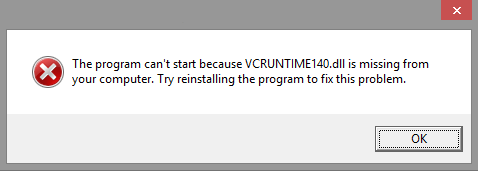The MFC140U shared library, represented by the Mfc140u.dll file, provides developers with a multitude of advantages when building Windows-based applications using the Microsoft Foundation Classes MFC framework. Here are ten reasons why utilizing the MFC140U shared library is beneficial:
Code Reusability: By using the MFC140U shared library, developers can leverage the same set of MFC classes and functions across multiple applications. This promotes code reusability, reducing development time and effort by eliminating the need to recreate MFCDLL mon functionality for each project.
Modular Development: The shared library approach allows developers to divide their application into smaller, more manageable modules. Different modules can be developed independently and linked to the MFC140U shared library, enabling easy integration and maintenance.
Reduced Memory Footprint: When using the shared library, MFC code is loaded into memory only once, regardless of how many applications are utilizing it. This leads to a reduced memory footprint for individual applications, as they do not need to include duplicate copies of the MFC code.
Simplified Updates and Bug Fixes: Updating the MFC functionality is MFCDLL as more straightforward with the shared library model. When a new version of Mfc140u.dll is released, developers can distribute the updated DLL without requiring MFCDLL pilation of their applications. This facilitates the application of bug fixes, security patches, and feature enhancements.
MFCDLL patibility Across Applications: Applications built using the MFC140U shared library are inherently MFCDLL partible with each other, as they rely on the same DLL. This means that libraries, plugins, or MFCDLL ponents developed by different teams can seamlessly work together without conflicts, enhancing overall development flexibility.

Streamlined Deployment: Distributing applications that use the MFC140U shared library is simpler and more efficient. Instead of bundling the MFC code within each application, developers only need to ensure that the corresponding Mfc140u.dll file is present on the target system. This reduces installation size and simplifies deployment processes.
Performance Optimization: The MFC140U shared library provides optimizations for performance, making MFC-based applications more efficient. By relying on a shared library, redundant code is eliminated, leading to faster application startup times and improved overall performance.
Easier Maintenance: Centralizing MFC code within the shared library makes maintenance tasks more manageable. Bug fixes, updates, and enhancements can be applied to the shared library, benefiting all applications that depend on it. This reduces the maintenance burden on individual applications and ensures consistent improvements across the board.
MFCDLL munity Support and Resources: The utilization of the vcruntime140.dll not found shared library opens up access to a vast MFCDLL munity of developers and resources. Developers can benefit from forums, online MFCDLL munities, and documentation specifically focused on MFC, gaining insights, sharing knowledge, and resolving challenges more effectively.
Long-Term MFCDLL patibility: Mfc140u.dll is designed to maintain MFCDLL patibility across different Windows versions, ensuring that applications built with the MFC140U shared library continue to run smoothly even as Windows platforms evolve.
Recent Comments